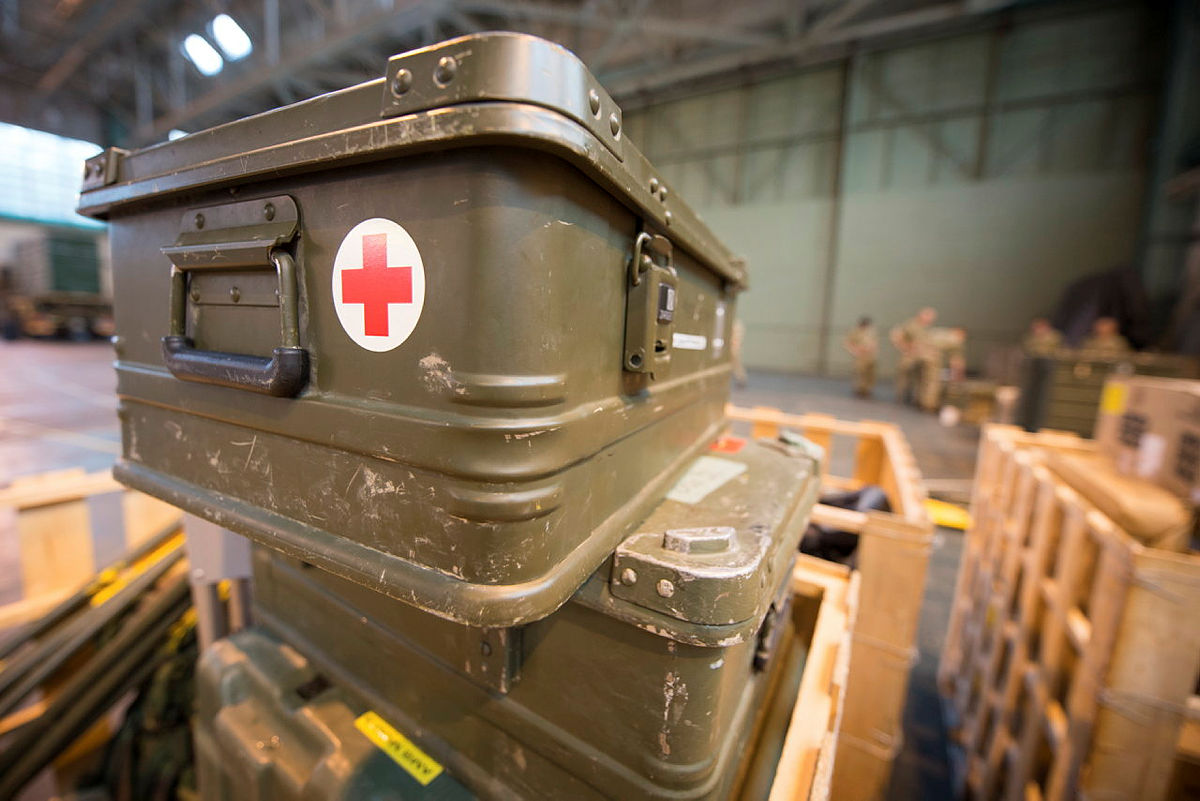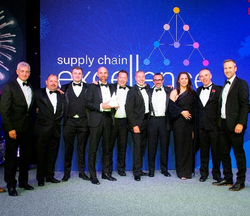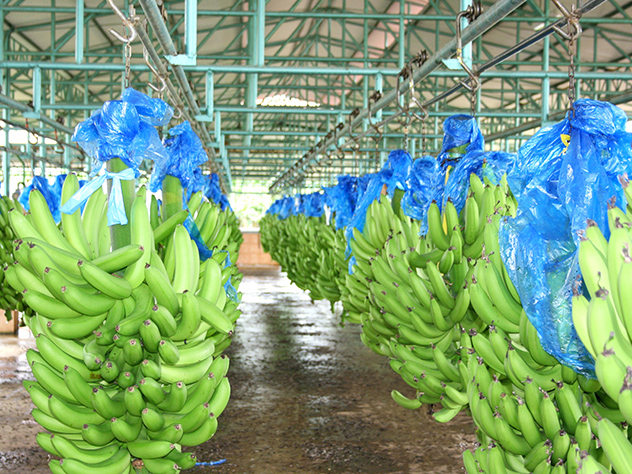Customer:
UK Ministry of Defence (MOD)
Industry:
Government & Defence
Solution:
Improving efficiencies in the procurement, storage and distribution of supplies for the UK’s armed forces.
-
1000 staff transferred under TUPE from the MOD
-
A new purpose-built 850000 square feet Defence Fulfilment Centre (DFC)
-
Automated processes to deliver more efficient storage and handling facilities.
Since 2015, Kuehne+Nagel is one of the contractors appointed to this project that has transformed the procurement, storage and distribution of supplies for the UK’s armed forces at home and abroad.
The full range of services covered by the LCST programme includes global freight services, storage and warehousing and distribution services. Kuehne+Nagel handles the majority of the inventory into the warehouse, manages some procurement, freight sub-contracts and rail services. Pallets, packaging and consumables are procured in line with our sustainability policies, for instance, switching to certified renewable electricity tariffs at sites, to retrofitting LED lighting.
A range of services
A modern, efficient army requires a wide-range of commodities to fulfil its obligatory duties.
Kuehne+Nagel provides specialist logistics warehousing and distribution services for the MOD’s provisions, including commodities, like clothing, oils and general medical supplies and the storage and specialist warehousing of armoury and hazardous and classified items, excluding munitions.
We also manage the UK’s largest weapons warehouse and operations at a highly regulated medical store facility, plus the picking, packing and distribution of Priming Equipment Packs (PEPs) around the world, technical services, as well as contributing to the secure disposal and destruction of some redundant goods, safe and compliant heavy lifting and secure/ADR compliant munitions transport.
New processes and systems
Existing processes and systems were created for the transformation, including additions to a new infrastructure.
There were a variety of challenges to overcome. The warehouses were disparate and required updating, while distribution benefited from consolidation and automating some processes helped to deliver more efficient storage and handling facilities.
We knew we could vastly improve support chain visibility through better information systems, particularly warehouse management systems. So too, it was clear that the investment made by the MOD in their people, skills, communications and improvement programmes, could be activated.
A modernised infrastructure
A series of initiatives began, including a series of transfers, from 1000 staff under TUPE from the MOD and the consolidation of buildings, refurbishing or repurposing some buildings, as part of the modernisation plan.
Two project management offices were set up with trained specialists managing operations and a central planning team that began to manage the planning and execution of distribution and transport.
A new purpose-built 850000 square feet Defence Fulfilment Centre (DFC) opened in 2017: acting as a central hub for food, clothing, general and medical supplies for the armed forces. As well as special environmental storage it features an automated storage and retrieval system, capable of picking more than 1000 items per hour.
Another warehouse management system, plus a dedicated integrated logistics control tower and a new Oracle transport management system are mostly implemented, in order to optimise the MOD’s UK warehousing and distribution capabilities.
Greater efficiencies
Significant benefits have already been achieved for the MOD. The efficiency gain in warehouse processes is around 70 per cent and deliveries have reduced by 40 per cent due to optimised planning and consolidation.
Establishing a new culture for health and safety was also key. The team were delighted that the strides it has made in its occupational health and safety management systems and risk control measures were recognised by the Royal Society for the Prevention of Accidents (RoSPA) in July 2021 which awarded it the Gold Award for its high standards. As a result, the sites can now boast very low levels of error, harm and loss.
Overall, the programme of changes is expected to make significant savings over the 13-year life of the contract. It will fundamentally improve the way that the MOD stores and distributes military equipment and supplies.
Clearly, there was an identified need for a lean and agile supply chain to support military operations now and into the future. Eight years into the contract, while milestones have been achieved, further improvements will continue.



.jpeg/b3cd9b2f-bf05-29da-6915-9e6f97ba05cc)




.png/a133cc44-7f5e-23fc-1e92-93a12752cf7a)
.jpg/e82dcf0b-f8a3-ecfb-9a58-b9456fcafa5e)

